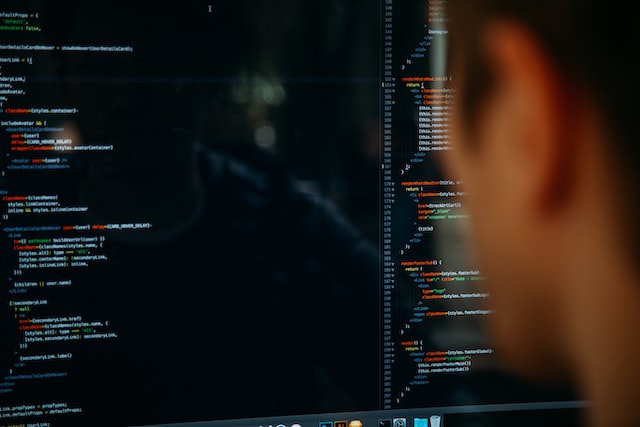
Key takeaways:
- Seizure of electronic storage devices and electronic data extraction are the two statutory methods for Chinese police and procurators to collect electronic data.
- Different approaches would apply when it comes to the collection of electronic data located in China and that located outside of China.
- The 2016 Provisions is the first rules in China that allow the police to remotely access the electronic data located on overseas servers online, but makes no mention of international criminal judicial assistance.
- The 2019 Rules amends the 2016 Provisions, indicating respect for foreign data sovereignty. Under the 2019 rules, In terms of overseas electronic data, China’s police may extract it online remotely where it has already been published to the public. However, in the case that it has not been made public, China’s police are not allowed to extract it online.
Chinese police and procurators may collect electronic data by seizure of electronic storage devices and electronic data extraction. It is also noteworthy that different approaches would apply when it comes to the collection of electronic data located in China and that located outside of China.
I. Rules on the Collection of Electronic Data in Criminal Proceedings
In China, the set of rules on electronic data collection in criminal cases dates back to 2010. Afterwards, China’s Supreme People’s Court (SPC), the Supreme People’s Procuratorate (SPP) and the Ministry of Public Security formulated a series of rules on electronic data issues in criminal trials, prosecutions, and investigations. There are four major documents.
1. The Opinions on Several Issues concerning the Application of Law in the Handling of Online Gambling Criminal Cases, promulgated in 2010 (the “2010 Opinions”, 關于辦理網絡賭博犯罪案件適用法律若干問題的意見)
This is China’s first set of rules concerning electronic data in criminal cases, which was promulgated by the SPC, the SPP and the Ministry of Public Security on 31 Aug. 2010.
Pursuant to the 2010 Opinions, investigation organs shall extract, copy and preserve electronic data, such as website pages, internet connection records, e-mails, electronic contracts, electronic transaction records, and electronic account books, which may serve as criminal evidence to prove the facts of committing a gambling crime, and shall make written explanations for the process of collecting, copying and preserving such electronic data.
However, the 2010 Opinions does not make more specific requirements for methods of electronic data collection.
2. The Opinions on Several Issues Concerning the Application of Criminal Procedures in Handling Internet-based Criminal Cases, promulgated in 2014 (the “2014 Opinions”, 關于辦理網絡犯罪案件適用刑事訴訟程序若干問題的意見)
The 2014 Opinions was promulgated by the SPC, the SPP and the Ministry of Public Security on 4 May 2014.
The 2014 Opinions provides the following two ways of collecting electronic data for the first time:
(1) to obtain the original storage devices;
(2) to directly extract the electronic data in the case that the original storage devices cannot be accessed.
3. The Provisions on Several Issues Concerning the Collection, Extraction, Examination and Judgment of Electronic Data in Handling Criminal Cases, promulgated in 2016 (the “2016 Provisions”, 關于辦理刑事案件收集提取和審查判斷電子數據若干問題的規定)
The 2016 Provisions was promulgated by the SPC, the SPP and the Ministry of Public Security on 9 Sept. 2016.
The 2016 Provisions sets up China’s first rules specific to electronic data in criminal cases. The 2016 Provisions mainly covers the following aspects:
(1) the methods that the police (investigation organs) use to collect and extract electronic data;
(2) how electronic data is demonstrated and transferred from the police to the public procurators (procuratorates) and from the public procurators to the courts; and
(3) how courts examine and review electronic data.
4. The Rules on Obtaining Electronic Data Evidence in Handling Criminal Cases by Public Security Authorities, promulgated in 2019 (the “2019 Rules”, 公安機關辦理刑事案件電子數據取證規則)
The 2019 Rules was promulgated by the Ministry of Public Security and came into force as of 1 Feb. 2019. The 2019 Rules only addresses how the police, as the investigating organs, deal with the electronic data in the investigation process of criminal proceedings.
The 2019 Rules further clarifies six methods by which the police can collect electronic data:
(1) the police may seize and seal up the original storage devices;
(2) the police may extract electronic data from the original storage devices on-site where the original storage devices cannot be seized;
(3) for the electronic data released to the public and the electronic data on the domestic remote computer information system, the police may access the data online through the network;
(4)where the retrieval of electronic data is inconvenient due to the sheer volume of data and the long time it takes to extract it, the police can freeze the electronic data on the original storage devices to prevent it from being tampered with or damaged;
(5) the police may also ask relevant entities and individuals to retrieve the electronic data or request them to provide relevant data; and
(6) where the original storage devices cannot be seized, the electronic data cannot be extracted, and the electronic data will self-destruct, the police may locate the evidence by printing, photographing, or recording.
II. Rules for the Collection of Overseas Electronic Data
All of the above-mentioned four documents also involve the issue of how China collects overseas electronic data in criminal cases. The highlights are summarized as follows:
1. The 2010 Opinions
Where the electronic data is stored in an overseas computer, the police shall still take it as criminal evidence to extract, copy, preserve and record the process. The record shall be signed by a witness who can attest to the process.
2. The 2014 Opinions
Where the original storage devices on which the electronic data is stored are located overseas and the police do not have access to the original storage devices, the police may extract the electronic data.
However, the 2014 Opinions does not clarify how the police extract the electronic data. For example, it is unclear whether the Chinese police can go to the place where the original storage devices are located and extract them on the spot or remotely through the network.
The 2014 Opinions is also silent on whether the extraction of such evidence should be carried out through international judicial assistance.
3. The 2016 Provisions
Where the original storage devices on which the electronic data is stored are located overseas and the police do not have access to the original storage devices, the police can extract the electronic data, such as extracting online via the internet.
This is the first time that China stipulates that the police can remotely access electronic data located on overseas servers online. But again, it makes no mention of international criminal judicial assistance.
Therefore, some scholars in China raised doubts about whether the 2016 Provisions conflicts with other countries’ cyber security and data sovereignty, which led to the result that the 2019 Rules adjusted the police’s practice of overseas electronic data extraction.
4. The 2019 Rules
For the electronic data released to the public and the electronic data on the domestic remote computer information system, the police may access the data online through the network.
The 2019 Rules amends the 2016 Provisions, indicating respect for foreign data sovereignty.
Under the 2019 Rules:
(1) In terms of overseas electronic data, China’s police may extract it online remotely where it has already been published to the public. However, in the case that it has not been made public, China’s police are not allowed to extract it online.
(2) In terms of electronic data stored on remote computer information systems in China, China’s police may remotely extract it online.
Photo by charlesdeluvio on Unsplash
Contributors: Guodong Du 杜國棟









